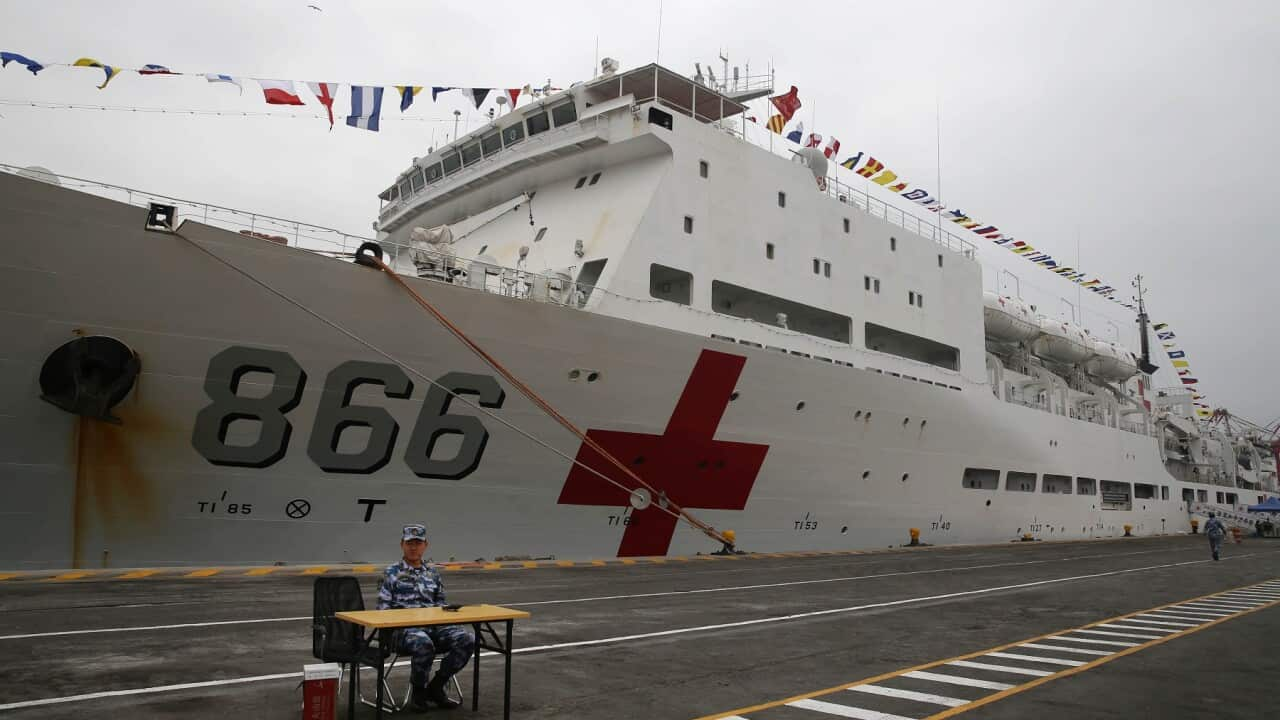TRANSCRIPT
The Peace Ark is a hospital ship which has visited more than 40 countries since it first set out in 2008.
It has more than 50 doctors on board and is currently crossing the Pacific - providing free medical care.
And it's part of the Chinese navy, operated out of Beijing.
And it's this influence that the Australian government is looking to challenge... with its new foreign aid policy.
Senator Penny Wong is the Minister for Foreign Affairs.
"You've probably heard me say a number of times in these past months that in the context of these challenges our nation has to deploy all of our national power, all tools of statecraft to help shape the region we want."
There is no new funding ... rather it's a rulebook to spending the 4.7 billion dollars allocated in May.
International Development and Pacific Minister Pat Conroy says there's no hidden agenda to the policy.
“It's based on the priorities of our partners. We are transparent, it is not transactional, it does not come with strings attached. And we use every opportunity to drive local employment procurement and skills development and finally it is a high quality offering."
But there are conditions.
New builds must engage local workers.
And most infrastructure projects worth more than three million dollars must either improve gender equality or build resilience to climate change.
Pat Conroy again:
"We think about where it's placed on an island so that it survives rising sea levels, and that it's fit for future use or when we're building a school we use cyclone proof screws to make sure when we see more cyclones of greater intensity due to climate change, that we don't lose the roofs of the schools because of cyclones"
Roland Rajah of the Lowy Institute's Indo Pacific Development Centre says Australia can be a little too cautious - while China can be a little too quick:
"There can be too much red tape, there can be too much risk aversion. On the other hand China doesn't do a lot of due diligence around their projects, they might be quick to approve a project, they might be quick to do a project, but it often leads to problems later down the road. So we don't want to head in that direction either - we don't want to end up engaged in a race to the bottom."
Shadow Foreign Minister Simon Birmingham says the conditions in the new foreign policy have bi-partisan support:
“Bad development assistance that comes in forms that leave lasting problems for Pacific Island countries is something we should make sure they steer well clear of and understand the consequences. Whereas making sure Australia's quality investment is well understood by everybody."]
The government has carefully avoided naming China as the trigger behind the new policy, but the Foreign Minister HAS alluded to nations using development and debt to coerce.
“It's central to our world view that each country must be able to determine its own fate and make choices for itself. It's why we don't engage in unsustainable lending that diminishes sovereignty. It's why our relationships are built on partnerships and respect."
A strategy aimed at Australia staying the security partner of choice.













